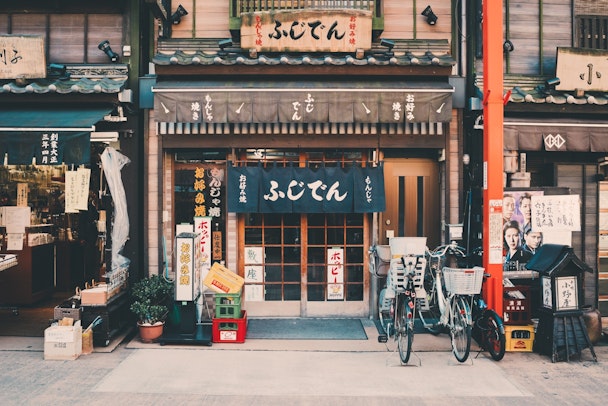The importance of respecting holiday destinations – and the planet
Attitudes toward the environment and sustainability have developed quickly over the last 18 months, with more people than ever expressing a commitment to reducing their travel-based carbon emissions. What, asks agency Kemosabe’s head of strategy and performance John Speers, does that mean for travel marketers?

Travelers are thinking more about their impact on the planet / Clay Banks via Unsplash
It struck me hard far in the hills of Sicily last week. In a village built in 750BC high in the hills, with a population of 3,000 and streets wide enough for horses, it felt like industrialization had passed the village by. The food handmade for centuries, harvested from the fertile soil of Mt Etna; the wine (at 8 euros a liter) so clean as if hand-pressed; the life and banter passionate; the views and life simple and spectacular. There was no ‘slow food’ or ‘organic’ or ‘eco’ signs. The community just did as they have always done, in tune with nature and each other.
Travel has been ‘extractive’ for far too long – taking from the people and places we visit, while most of the money goes into corporate pockets.
But there is a new way to travel. A conscious way that considers and rewards both the place and local people who host you.
It’s how we used to travel – the Grand European tours were an education to broaden mind and soul, to breathe different cultures and lives into us. I believe we are returning to that.
I believe that we are entering the third age of travel. The first was exploration; then ‘leisure and entertainment’ stepped in (or dropped by the pool.) Now, with the pandemic fueling the zeitgeist, we enter the third age. Traveling deeper with longer, more considered trips and engaging with local people and culture. This is the age of conscious travel.
Conscious travel has sustainability (understood as the holy trinity of environmental, social and governance measures) naturally embedded in it.
Getting behind the scenery
According to Accenture, 73% of corporate executives identified ‘becoming a truly sustainable and responsible business’ as their top priority. They tracked 4,000 companies engaged in up to 146 ESG initiatives and found those engaging in 21% more initiatives had a 21% greater profit margin. So now we understand doing good equals greater profit, while living up to stakeholder and social media scrutiny.
The problem is that the travel industry is its own Titanic. Travel is the largest industry on the planet, employing 10% of people and generating 10% of global GDP. It’s big business, caught in a trajectory of high-volume tourism, driven by pretty scenery captured by influencers.
Conscious travel is getting behind the scenery to local people and culture. Community, experience, purpose and authenticity: these are the tenets of travel accelerated by the pandemic.
Increasingly we will stay local, eat local, drink local – experience everything local. This gives the traveler the authentic experience they want and puts money directly in the hands of locals. Win/win.
This is the central force behind much of our recent work at Kemosabe. It’s why we have Effies and dozens of travel industry awards, which are now given for ‘giving back’ to the local communities that host authentic experiences travelers love.
We dig deep to capture the soul of a destination. We then develop content that reflects every inch of that soul. We serve different content to different people relevant to their personal passion points, uncovered through research and interrogating the digital fingerprints of travel search. Only through relevance can you bring ‘one-day bucket list’ destinations forward to “I have to do that now.’
It’s no longer about ‘the ad,’ but a stream of content tailored and served to specific people at specific times on different platforms. The goal is to create an immersive, tailored digital experience that will mirror and whet the appetite for the physical experience in the destination. The closer you get, the better the engagement and conversion.
We have done this for destinations, airlines and hotels in the Caribbean, South America, Europe and the South Pacific. All are about the soul of the people as much as the place.
Ikigai: acting with purpose
The Japanese phrase ‘ikigai’ refers to doing everything with a purpose – whatever the Japanese do, make or eat, nothing is superfluous. This is a great message for digitally-immersive experiences.
Acting with purpose is also at the heart of sustainable travel as we wean off carbon and on to biofuels, hydrogen cells and fuel cells provided by solar and wind – the ways we will travel in the future.
Under our pending B Corp certification, ‘people’ and ‘planet’ are officially on the same footing as ‘profit.’ Through our work, we have learned campaigns and communications are not enough and we must strive to go further. We publish Travel for Good, a compendium of best practice sustainable travel initiatives. Sustainable operations need to come first, communication second. And when the two are combined you have a virtuous circle.
Speaking of virtuous circles: to travel with respect for locals, to have fun with the locals, to learn and leave their place in better shape than when we found it. It’s a new age of conscious travel, because if not now, when?
Content by The Drum Network member:

Kemosabe
From deep diving into data and the audience who creates it,We create an idea that's so tight, it's an 'inch wide'.An idea so inch wide, it can penetrate a 'mile...
Find out more
